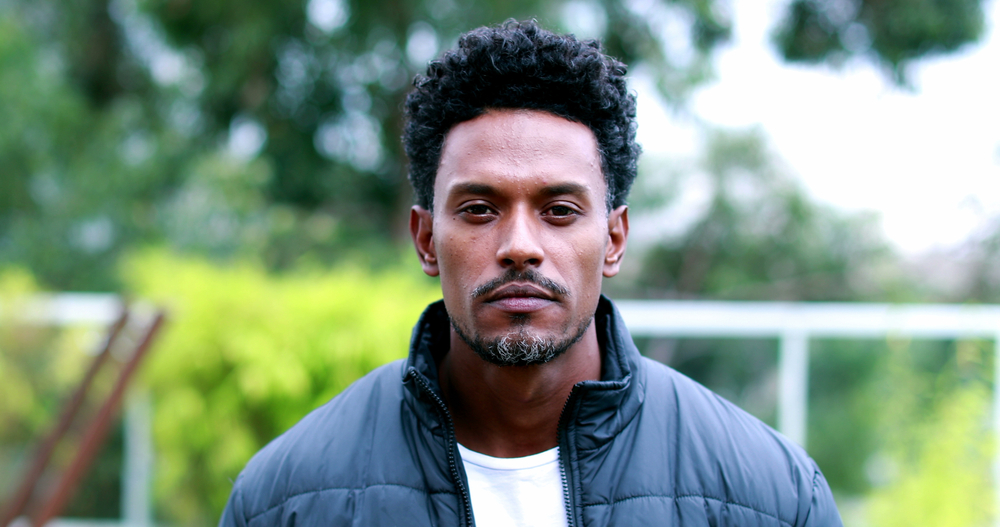Some people just seem to have an empathy-shaped hole in their hearts. As a result, they struggle to understand or care about other people’s feelings, and it really sucks. Recognizing these patterns protects your emotional well-being because these folks can leave you feeling drained, unheard, and deeply frustrated.
1. They struggle to see things from another person’s perspective.

It’s like their world revolves entirely around their own thoughts, feelings, and needs. They have difficulty stepping into someone else’s shoes, imagining what someone else might be experiencing, or considering the impact of their actions on others. This limited perspective is at the core of their lack of empathy, PsychCentral explains.
2. They don’t truly apologize.

A begrudging “sorry” muttered under their breath isn’t enough. Genuine apologies involve understanding the impact of your actions on another person and express sincere remorse. Those lacking empathy struggle with taking accountability. Instead, they often offer half-hearted apologies designed to shut you up, not out of genuine regret.
3. They dismiss your emotions, especially if they see them as “inconvenient.”

Tears are met with annoyance, not concern. Expressing fear is labeled “being dramatic.” They minimize your feelings, making you question your own emotional validity. This isn’t just insensitivity, it’s a way to avoid the discomfort of dealing with emotions they don’t understand or simply don’t care about.
4. They see kindness as a weakness.

Compassion is for suckers, and they pride themselves on being tough, unsentimental, and prioritizing their own needs above all else. Seeing someone going out of their way to help others might be met with mockery rather than admiration. They misunderstand kindness for naiveté and believe a cutthroat attitude is necessary for success, even at the expense of others.
5. They’re masters of manipulation.

While those without empathy lack the ability to feel for others, they’re often cunning at figuring out how to use others’ emotions against them. Fake apologies, crocodile tears, feigning vulnerability…it’s all a ploy to get their needs met. They understand emotions are powerful motivators, they just don’t experience them genuinely themselves.
6. Conflict fuels them, not scares them.

People lacking empathy thrive on drama. They provoke arguments, stir up disagreements, and seem to get a thrill from emotional chaos. Because they’re not bothered by your anger or tears, fights become a twisted form of entertainment where they always feel in control (even when they’re causing destruction).
7. They make cruel jokes or comments, then dismiss it as “just teasing.”

They poke at your deepest insecurities, make off-handed insults, or engage in humor that feels mean-spirited. When you call them out for being hurtful, they accuse you of being “too sensitive,” unable to “take a joke,” or twist it around to make it seem like you’re the problem. This blurring of the line between playful teasing and genuine cruelty is a sign that they don’t respect your emotional boundaries.
8. You feel drained and unheard after interacting with them.

Conversations feel one-sided, your problems get minimized, your attempts at emotional connection fall flat. Interacting with someone lacking empathy is exhausting! You’re constantly the one giving emotional support and understanding, only to receive none in return. This imbalance leaves you feeling drained, frustrated, and questioning if your feelings even matter.
9. They have difficulty maintaining long-term friendships or relationships.

Deep, meaningful connections are built on a foundation of mutual understanding, emotional reciprocity, and a genuine interest in another person’s well-being. People lacking empathy struggle to provide those essential components. Their relationships are often shallow, marked by conflict, or they cycle through “friends” quickly, leaving a trail of burned bridges in their wake.
10. They blame others for their problems.

Nothing is ever their fault! Accountability is foreign to them. Failed relationships, career setbacks, any misfortune…they’ll find someone or something to pin it on. This victim mentality is often disguised as “realism.” They claim to be “just seeing the world as it really is,” when really they’re avoiding the hard work of self-reflection and refusing to acknowledge how their own behaviors contribute to their issues.
11. They break promises without remorse.

Flaking on plans at the last minute, “forgetting” important commitments, or going back on their word isn’t a big deal to them. Your disappointment is an afterthought, if they even register it at all. People lacking empathy prioritize their own needs in the moment, and since they lack that emotional connection, the impact their broken promises have on others barely registers.
12. They’re constantly comparing themselves to others.

Life seems like a zero-sum game; someone else’s success means there’s less to go around for them. They can’t celebrate friends’ wins without a pang of jealousy or the need to one-up them. Underneath the comparisons is a deep insecurity. Their need to feel superior is a way to cope with a fragile sense of self.
13. They rarely show gratitude or appreciation.

They operate under the belief that they deserve good things, so why thank anyone for giving them what’s rightfully theirs? Whether it’s taking their partner’s support for granted, not acknowledging a thoughtful gesture, or acting unimpressed by gifts and favors, a lack of gratitude is a sign of deep-seated entitlement.
14. They see forgiveness as “letting someone off the hook.”

Holding onto grudges gives them a twisted sense of power, PsyPost reveals. Forgiveness, for them, feels like weakness or implies they were the one in the wrong. They’d rather weaponize past hurts in the present, using those old wounds as leverage to guilt-trip or manipulate. True forgiveness requires a degree of empathy – being able to let go of justified anger to find healing – which is something they struggle to comprehend.
15. They have a short fuse.

Minor inconveniences or frustrations escalate into full-blown outbursts of anger. They have difficulty regulating their emotions, leading to overreactions and lashing out at those around them. The slightest provocation can set them off, as their low threshold for frustration combined with a lack of empathy makes them see any disagreement or setback as a personal attack.
16. They interrupt, talk over people, and disregard others’ opinions.

Conversations feel more like a competition for airtime rather than an exchange of ideas. Their thoughts are paramount, interrupting others to dominate the discussion. Even if you manage to get a word in, they rarely truly listen. Genuine dialogue requires empathy, the ability to step back and try to understand where another person is coming from, and those lacking empathy simply aren’t interested in any view but their own.
17. They can be incredibly charming…until they’re not.

Many people lacking empathy have a superficial understanding of social cues and can mimic “appropriate” behavior to get what they need. Initial charm masks their true nature. But it’s a facade, not genuine warmth. Once that charm has served its purpose, or they feel challenged or their ego is bruised, the mask slips. That’s when the coldness, the dismissiveness, or even cruel behavior emerges.
Enjoy this piece? Give it a like and follow PsychLove on MSN for more!



